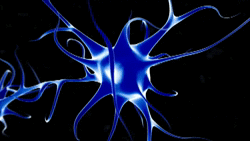
Bridge drawings make excellent art therapy directives for exploring these life transitions. They can also help clients explore what they need to get to the other side of a tough situation. Bridge drawings also help clients identify the barriers that are in the way through symbolic imagery and meaning-making. Additionally, when you ask clients to place themselves in their drawings, you get lots of good information about where they might be stuck and why.
The Therapeutic Benefits of Creativity During the Recovery Process
Moving on from the scientific rationale for art therapy, the next section will share personal stories from those who have walked the path of recovery. For someone facing challenges in addiction, the benefits of art therapy are huge and profound. It offers a non-judgmental space to explore your experiences, heal emotional wounds, and discover new strengths. Each of these techniques serves a unique purpose in the recovery journey, offering different avenues for self-expression and insight.

Phone, Video, or Live-Chat Support
In guided painting sessions, recovery is a collective experience. You often find support from your peers who are on similar paths. These art therapy ideas for adults in recovery stories underscore the empathy that art therapy fosters.
- This blending can represent the complexity of emotions and experiences during recovery.
- Over time, as confidence grows, larger and more intricate sculptures can be explored.
- Online resources and virtual art therapy sessions have made these practices more accessible than ever before.
- Transformational collage is a powerful art therapy exercise that encourages individuals in addiction recovery to visualize the changes they wish to see in their lives.
Art Therapy for Addiction: Benefits, Techniques, How to Find a Therapist

Watercolor, in general, creates soft, beautiful pieces of color that evoke all sorts of emotions. This art form is often used to relieve stress and relax the mind, making it a great tool for addiction recovery. It helps the painter express feelings in a safe and supportive way. Art therapy isn’t merely about creating beautiful artworks.
- The exercise develops the emotional world, communication skills.
- Art therapy is a form of psychotherapy based on creativity and self-expression.
- It can also help your mental health professional better understand you and help you navigate toward a brighter future.
- On the contrary, art therapy allows for more abstract forms of communication.
Create a Collage of “Words to Live By”
Art therapy in recovery is not limited to any age group or socioeconomic class. And it has worked well for treating mental health concerns for adults, children, individuals, families, and couples. These therapists have specialized training in art therapy treatment for addiction and hold a master’s level degree or higher.

Use charcoal along with colour pencils or wax crayons. The art therapy ideas of such activities are to relieve emotional stress by immersion in oneself. Let the pencil flutter freely on the paper, draw doodles without any purpose or intention and pass it on to your partner, who must create an image from them and develop it. The exercise helps you immerse yourself in https://ecosoberhouse.com/ your own world, sets you up for reflection. Paint different moods (sad, cheerful, joyful, etc.).
- Measuring progress and outcomes in art therapy can be challenging, as the benefits are often subjective and deeply personal.
- Through colors, shapes, and textures, art therapy offers a safe haven for introspection and release, a place where trauma can be processed, and healing can flourish.
- Creating of such therapeutic art projects develops self-regulation, the ability to constructively interact.
- I came up with this art therapy directive while working with a parent who was stuck in a pattern of self-defeating thoughts and behaviors.
By engaging in various art-making activities, those in recovery can explore their emotions, develop coping skills, and find new ways to communicate their struggles and successes. Art therapy has been shown to be an effective complement to traditional addiction treatment methods, providing a holistic approach to healing and personal growth. Using coloring books is a therapeutic activity that can calm the mind by allowing it to focus on something simple. Often times in recovery, alcoholics and addicts can deal with a wave of emotions, coloring using a coloring book is helpful in giving the mind something very simple to focus on.2.











